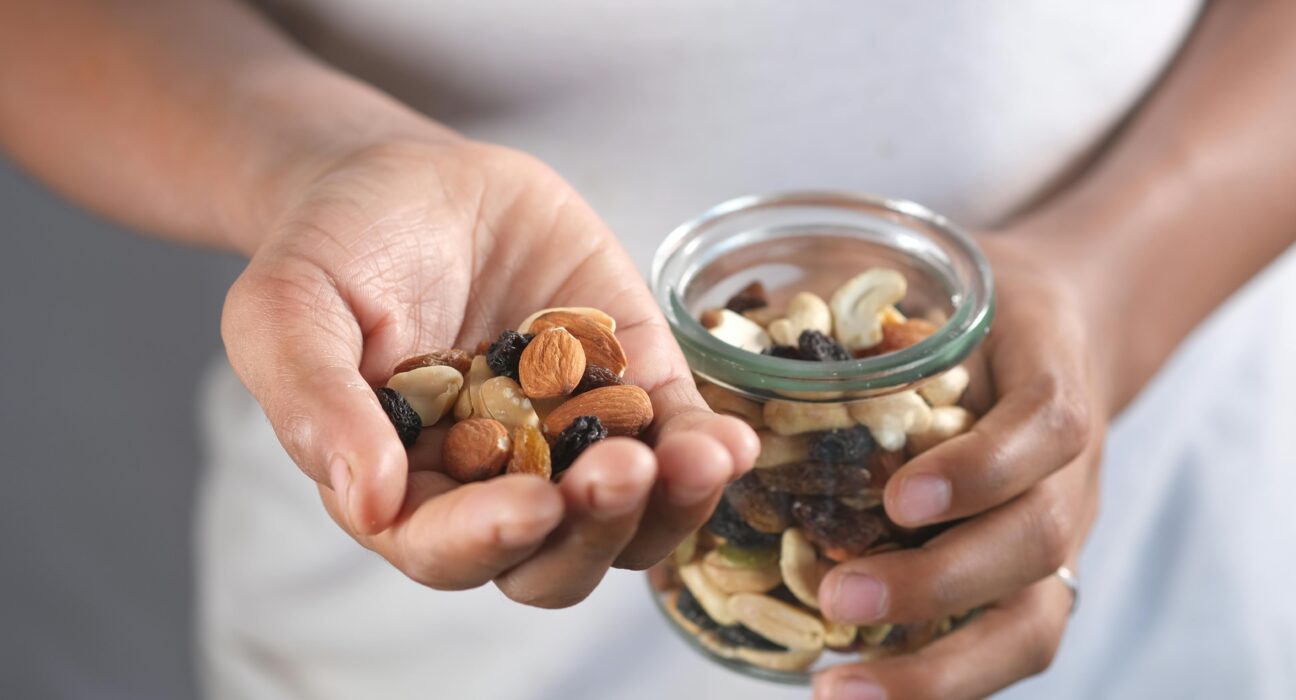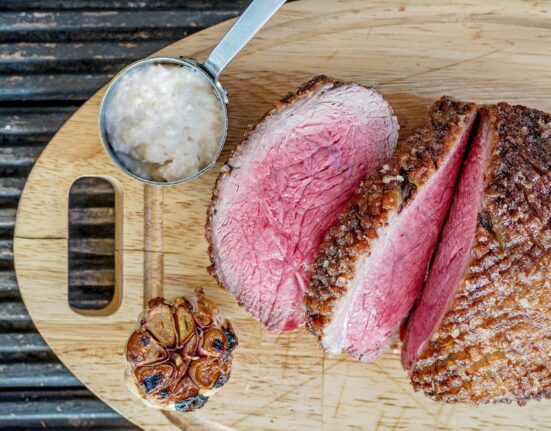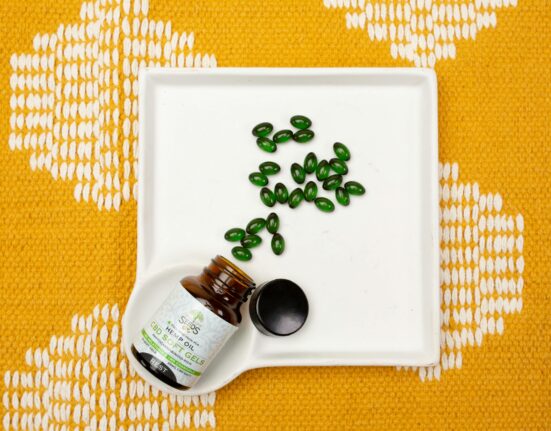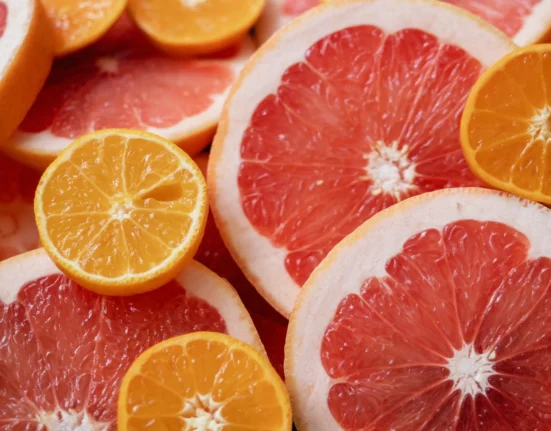Relying on caffeine to power through the day is so common it feels like second nature. But those quick fixes can leave you feeling jittery or drained later. The good news? There are healthier, more sustainable ways to keep your energy up. By choosing the right nutrient-packed foods, you can fuel your body naturally while improving your overall well-being. Let’s look at some simple, wholesome options that can keep you energized without relying on that next cup of coffee.
Why Choose Food Over Caffeine?
It’s tempting to rely on caffeine for that much-needed energy boost, but it’s not always the best long-term solution. Caffeine might give you a quick pick-me-up, but it often comes with a downside—a cycle of highs and lows that can leave you feeling worse than before. Alternatively, food provides more stable, lasting energy by fueling your body with essential nutrients. Let’s break it down.
The Downsides of Caffeine Reliance
While caffeine might feel like a lifesaver, it’s more of a short-term fix, often with consequences. Many people experience an all-too-familiar energy crash after the initial buzz wears off. This happens because caffeine stimulates your central nervous system, but it doesn’t offer your body anything substantial to maintain that energy level. Over time, this can create a dependence, making it harder to function properly without it.
Additionally, caffeine can negatively impact sleep quality, even when consumed hours before bedtime. Research has shown that caffeine decreases deep sleep stages, leaving you tired the next day and driving you back to the coffee pot to compensate. Want more details? Read about how caffeine consumption impacts sleep quality and daily functioning.
How Food Provides Stable Energy
Unlike caffeine, nutrient-packed foods deliver energy that lasts. Why? They fuel your body with vitamins, minerals, and macronutrients that work together to keep your engine running smoothly throughout the day. Instead of giving you a short “buzz,” eating the right foods creates a slow and steady release of energy.
For example, complex carbohydrates like oats or quinoa take longer to digest than simple sugars found in energy drinks, helping to sustain your blood sugar levels. Including foods with healthy fats—like avocados or nuts—adds another layer of nourishment, giving your body the tools it needs to function. Not to mention, options like fruits or vegetables are rich in vitamins and antioxidants, which play a critical role in combating fatigue. Curious which foods to focus on? Here’s a list of the best nutrient-dense foods to add to your diet.
Switching from caffeine to real food isn’t just about ditching the jitters; it’s about choosing what genuinely powers you. After all, energy that’s fueled by nature’s best beats quick fixes any day of the week.

Photo by Abdullah
Oats: The Energizing Whole Grain
When it comes to steady energy without the crash, oats are the ultimate go-to. This humble whole grain is more than just a breakfast staple—it’s a nutritional powerhouse that delivers sustainable energy throughout the day. Oats are packed with fiber, essential nutrients, and complex carbohydrates, making them an ideal choice for anyone looking to stay fueled naturally.

Photo by Zi’s Food&NatureArt
Why Complex Carbohydrates Matter
One of the key reasons oats shine as an energy source is their complex carbohydrate content. Unlike simple carbs, which are digested quickly and cause blood sugar spikes, complex carbs take their time. Oats slowly release glucose into your bloodstream, keeping your energy steady and preventing crashes.
Think of complex carbohydrates like a slow-burning candle, providing light for hours instead of a quick, bright spark that fizzles out. This sustained energy is especially beneficial for busy mornings, mid-day focus, or even intense workouts. The soluble fiber in oats, particularly beta-glucan, also plays a role in balancing blood sugar levels, preventing those dreaded spikes and dips that leave you dragging. For more information, check out this resource on oats as a steady energy source.
Easy Ways to Enjoy Oats Daily
Excited to add oats to your routine? They’re as versatile as they are nutritious. Here are a few quick and delicious ways to incorporate them into your meals:
- Overnight Oats: Mix oats with milk or a non-dairy alternative, add your favorite toppings like berries or nuts, and let it all soak in the refrigerator overnight. Wake up to a ready-made breakfast that’s both tasty and energizing.
- Smoothie Boost: Toss a handful of oats into your smoothie for added texture and long-lasting fullness.
- Classic Oatmeal: Top a warm bowl of cooked oats with fresh fruit, a sprinkle of cinnamon, and a drizzle of honey or almond butter.
- Baked Oatmeal Bars: Bake oats with bananas, dark chocolate chips, and a touch of maple syrup for an on-the-go snack.
By making oats a regular part of your meals, you’re giving your body a natural energy boost while enjoying a food that’s comforting, simple, and nutrient-dense. Want to learn more about their benefits? Discover why oats are an amazing addition to any diet.
Bananas: Nature’s Convenient Energy Booster
Sometimes the simplest, most natural foods are the best solution for maintaining energy throughout the day, and bananas are a perfect example. This bright yellow fruit isn’t just a snack staple; it’s a fuel-packed powerhouse. Loaded with natural sugars, complex carbohydrates, potassium, and vitamin B6, bananas provide a quick energy lift that won’t leave you crashing. Plus, their natural packaging makes them incredibly convenient for on-the-go eating.

Photo by Vegan Liftz
Electrolytes and Energy Boost
Bananas are particularly admired for their high potassium content, which is an essential mineral and electrolyte. Potassium plays a vital role in muscle function, nerve communication, and preventing fatigue. When your body lacks electrolytes, especially after strenuous activity or sweating, you can feel sluggish or even experience muscle cramps. Bananas help replenish those lost electrolytes, ensuring your muscles contract and relax as they should—keeping you feeling strong and energized.
In fact, potassium assists in balancing fluid levels in the body and counteracts the effects of sodium, which is great for supporting hydration. Think of it this way: eating a banana before or after exercise helps your muscles recover while giving your body a gentle push to stay hydrated. For additional insights, you can explore how potassium supports muscle function and overall health.
Nutritional Power in a Sweet Package
Bananas are more than just a good source of potassium—they offer a unique combination of carbohydrates and vitamin B6, which fuels your body in multiple ways. The natural sugars in bananas (glucose, fructose, and sucrose) are quickly digested, giving you the instant energy you need. At the same time, the fiber present helps to slow down sugar absorption, preventing any major blood sugar spikes.
Vitamin B6, on the other hand, plays an important role in converting food into energy. It supports your body’s metabolism and helps your brain maintain focus throughout the day. To break it down simply: a banana is like a compact energy bar—but without the processed ingredients. Want more scientific details? This resource explains the broad benefits of bananas in depth.
Easy and Delicious Ways to Enjoy Bananas
The beauty of bananas lies in their versatility. Not only are they convenient to eat on their own, but they can be included in a variety of snacks and meals. Here are some energizing, practical ideas for enjoying this tropical superfruit:
- Pair with Nut Butter: Slice a banana and pair it with almond or peanut butter for a combination of healthy fats, protein, and carbs.
- Blend into Smoothies: Toss a banana into your favorite smoothie mix for natural sweetness and creaminess.
- Energy-Packed Breakfast: Top oatmeal or whole-grain toast with banana slices for a satisfying, energy-rich meal.
- Frozen Banana Treats: Peel and freeze whole bananas. Dip them in dark chocolate for a wholesome dessert or chop into small pieces for smoothie bowls.
Health-conscious eaters love bananas because they don’t require any extra prep—they’re perfectly delicious as-is. Whether eaten fresh, frozen, or blended, this fruit is an ideal alternative to caffeine when you need a natural pick-me-up. For even more recipe inspiration, check out this guide to the benefits and uses of bananas.
Nuts and Seeds: Small But Mighty
When energy levels dip and you’re craving a mid-day boost, nuts and seeds are the perfect go-to snack. These nutrient-packed powerhouses are small in size but deliver big benefits. With their impressive mix of healthy fats, protein, and key minerals, they’re the perfect antidote to the caffeine cycle. Let’s explore why these tiny foods can have a mighty impact on your energy and focus.
Healthy Fats for Energy
Nuts and seeds are rich in healthy fats, making them an excellent source of long-lasting energy. Unlike carbs that burn quickly and leave you wanting more, these fats provide slower, steadier energy that fuels you for hours. Think of them as a log on the fire compared to kindling—longer-lasting and more efficient.
Monounsaturated and polyunsaturated fats in options like almonds, walnuts, chia seeds, and flaxseeds don’t just keep you energized; they also support brain health, helping you stay sharp and focused. Plus, many nuts and seeds contain magnesium—a mineral critical for energy production and reducing muscle fatigue. It’s no wonder they’re a favorite among nutritionists and athletes. Want to dig deeper? Check out the essential benefits of nuts and seeds.
Portable and Snack-Friendly Options
Busy lifestyle? No problem. Nuts and seeds are the most portable energy boosters you could ask for. They require no prep—just grab a handful and you’re good to go. They’re also versatile, working just as well in a snack bag as they do sprinkled over salads or smoothie bowls.
Here are some popular types and why they make a great on-the-go snack:
- Almonds: High in protein and vitamin E, almonds are a nutrient-dense option that provides a quick energy fix.
- Walnuts: Packed with omega-3 fatty acids, these are great for reducing inflammation and supporting sustained energy.
- Chia Seeds: Tiny but mighty, chia seeds expand and absorb liquid, keeping you hydrated and full at the same time.
- Flaxseeds: Rich in fiber and alpha-linolenic acid (a plant-based omega-3), these are a great addition to smoothies or yogurt bowls.
For the ultimate combo of convenience and health, consider making your own trail mix. Mix in dried fruits, dark chocolate chunks, or pumpkin seeds for added variety. If you’re curious about the best ways to add nuts and seeds to your diet, visit this comprehensive guide to their nutritional benefits.

Photo by Harrison Macourt
Whether tossed in a bag for a quick bite or blended into your favorite dishes, nuts and seeds effortlessly balance great taste with health benefits, keeping you fueled no matter the time of day.
Sweet Potatoes: The Natural Carb Powerhouse
When it comes to lasting energy and nutrition, sweet potatoes are an unbeatable choice. Their naturally sweet flavor, vibrant orange color, and versatility in meals make them a favorite among health enthusiasts and athletes alike. But there’s more to these root veggies than meets the eye—they pack a serious nutritional punch that supports energy, recovery, and overall health.
Rich in Complex Carbohydrates and Fiber
Sweet potatoes are an exceptional source of complex carbohydrates, which digest slowly and provide long-lasting energy. Unlike sugary snacks that give a quick energy boost followed by a crash, sweet potatoes keep your blood sugar stable. Think of complex carbs as a steady-release battery, giving you sustained energy for hours. Their high fiber content also helps with digestive health, ensuring your body can absorb those nutrients efficiently.
For athletes or anyone with an active lifestyle, complex carbs are essential for fueling endurance and maintaining stamina. Instead of turning to processed snacks or energy bars, consider roasting sweet potatoes for a natural, wholesome alternative. You can learn more about their amazing benefits from this resource on sweet potato nutrition and energy.
Vitamin A and Recovery Support
One standout feature of sweet potatoes is their incredible vitamin A content, primarily in the form of beta-carotene. Did you know a single sweet potato can provide up to 400% of your daily vitamin A needs? This vitamin is vital for muscle repair and overall recovery, making sweet potatoes an excellent addition to the diets of active individuals. After a tough workout, your body relies on nutrient-rich foods to rebuild muscle tissue. Sweet potatoes are like a recovery tool for your body, providing the nutrients it needs to bounce back.
Vitamin A also plays a role in maintaining a healthy immune system and protecting your vision. Find more details about how sweet potatoes support recovery and health in this comprehensive guide.
Simple and Delicious Preparation Tips
Sweet potatoes aren’t just nutritious—they’re incredibly versatile. Whether you enjoy savory or sweet flavors, there’s a way to prepare them to suit your taste. Here are a few easy and delicious ways to include them in your meals:
- Roasted Sweet Potato Fries: Slice sweet potatoes into wedges, toss them with olive oil, sprinkle on your favorite seasonings (like paprika or cinnamon), and roast them until crispy.
- Sweet Potato Bowl: Combine roasted sweet potato cubes with quinoa, leafy greens, and a protein source like grilled chicken or chickpeas. Top with a tahini dressing for a hearty, energy-packed meal.
- Mashed Sweet Potatoes: Swap out traditional mashed potatoes for this healthier version. Add a touch of coconut milk and cinnamon for a creamy, rich side dish.
- Sweet Potato Toast: Slice them into thin strips, toast in an oven or air fryer, and top with avocado or almond butter for a quick snack or breakfast option.
There’s really no wrong way to eat them. Whether you’re meal prepping for the week or looking for a post-workout snack, sweet potatoes deliver natural energy without the crash. Explore even more ideas and their nutritional highlights in this article about the health benefits of sweet potatoes.
Sweet potatoes remind us that energy-boosting foods don’t have to be complicated or bland—they can be wholesome, tasty, and packed with nutrients that fuel your body and mind.
Leafy Greens: Energy from the Earth
Leafy greens like spinach, kale, and Swiss chard might seem humble, but they’re true energy champions. Packed with essential nutrients like iron and magnesium, these greens help fight fatigue and keep your energy steady throughout the day. Adding them to your meals is a simple way to feel revitalized naturally.

Photo by Arina Krasnikova
The Role of Iron in Staying Alert
Iron is like the transport system in your bloodstream, delivering oxygen to every cell in your body. Hemoglobin, a protein in red blood cells, relies on iron to carry oxygen, giving your body the fuel it needs to stay active and sharp. Low iron levels can lead to fatigue, difficulty concentrating, and even shortness of breath.
Spinach is an excellent source of plant-based (non-heme) iron. Pair it with vitamin C-rich foods like oranges or strawberries to enhance absorption. Kale and broccoli also pack a significant iron punch, making them valuable staples for anyone looking to sustain energy. Learn more about iron’s impact on energy and focus.
If you’ve ever felt that midday slump, it might not just be tiredness—it could be your body crying out for more iron. Toss a handful of spinach into your smoothie, add it to a lunch wrap, or sauté it as a side—your cells will thank you.
Magnesium: The Hidden Energy Helper
Magnesium is a silent hero when it comes to energy. It plays a critical role in converting the food you eat into energy at the cellular level. This essential mineral also supports muscle function, helps regulate nerve communication, and prevents those aggravating muscle cramps that zap your energy.
Leafy greens like Swiss chard and spinach are excellent sources of magnesium while being low in calories. By eating these greens regularly, you’re giving your body a steady supply of the minerals it needs to operate efficiently. Cramping during a workout or feeling unexpectedly drained? That might be your body signaling a magnesium deficit. For more information, check out this detailed guide on magnesium and energy production.
To maximize magnesium intake, think beyond just salads. These greens can be blended into smoothies, added to omelets, or even baked into casseroles. The possibilities are endless, and the payoff in lasting energy is well worth it.
Leafy greens may be simple, but they’re undeniably powerful. Incorporating them into meals helps fight fatigue naturally, opening the door to sustained energy without the buzz and crash of caffeine.
Conclusion
Making the switch from caffeine to nutrient-packed foods can be a game-changer for your daily energy and overall well-being. Oats, bananas, nuts and seeds, sweet potatoes, and leafy greens all deliver a steady, natural boost without the jitters or crashes. These foods don’t just sustain your energy—they bring added health benefits like better focus, improved digestion, and stronger recovery.
Try replacing your usual caffeine fix with just one of these options for a week. See how your body feels with this sustainable energy source. Small changes like this can have a big impact on how you power through your day.
Fueling your energy the natural way isn’t complicated—it’s about making thoughtful choices your body will thank you for. Ready to give it a try?








